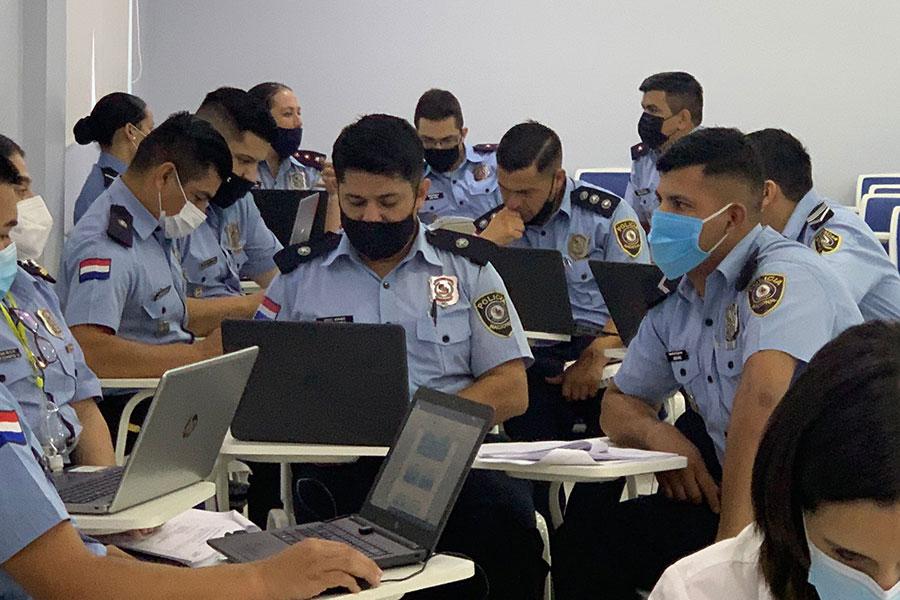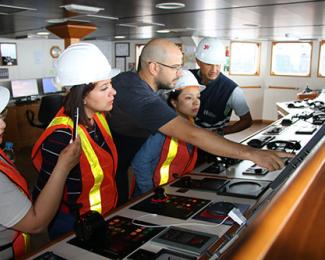Making Police Training on Labor Exploitation More Sustainable
"The ATLAS project gave me tools to improve my teaching."
— Officer Diana Ramirez
Child labor, forced labor, and human trafficking are illegal in most countries. But laws often go unenforced because police do not understand the crimes, know how to identify them, or are unaware of proper procedures to follow. While there are programs that provide funding for law enforcement training on these issues, many of them focus on training current officers or specific units. This can improve things in the short term, but these skills are often lost when trained officers are replaced or rotated out.
An ILAB-funded project implemented by Winrock International – in coordination with Lawyers Without Borders, Partners of the Americas, and Desarrollo y Autogestión – takes a different approach. The Attaining Lasting Change for Better Enforcement of Labor and Criminal Law to Address Child Labor, Forced Labor, and Human Trafficking (ATLAS) Project works with official training academies in Thailand, Paraguay, Liberia, and Argentina to update, improve, and adapt new courses and curricula on child labor, forced labor, and human trafficking for new officers.
ATLAS first developed a master Enforcement Training Program, which covers identification of labor exploitation, investigation, referral, prosecution, and sentencing. With local buy-in, the project then worked with stakeholders to adapt the curriculum to each country’s context and pilot the training program with select officers. Based on the pilot and the specific needs of each institution, ATLAS and the academies refined the country trainings and developed plans to better integrate the new approach into existing training programs and curricula.
Across the four countries, ATLAS has trained a total of almost 1,200 police, prosecutors, judges, labor inspectors, and other law enforcement officials.
Officer Diana Ramirez was part of that process in Paraguay. She is an instructor with the National Police’s Higher Institute of Police Education and has been teaching human rights since 2010. “We police officers should represent the best of society, so to speak, because in our hands are a series of powers and faculties that can do just as much good as they can harm,” she said. “I know about gender-based-violence, and I know the harm and trauma that can be generated around a human trafficking situation. And now, thanks to the training, I also know what situations of forced labor and child labor entail. That is why I value the trainings.” Officer Ramirez now includes child labor, forced labor, and human trafficking in her classes.
Already, Ms. Ramirez has incorporated new and improved content into the courses she delivers fellow police officers. “The ATLAS project gave me tools to improve my teaching,” she explained. “And from that I was able to include the topics of child labor, forced labor, and human trafficking into my classes, especially in terms of investigative planning.” Meanwhile, at the institutional level, ATLAS worked with the Institute to integrate Enforcement Training Program materials into ongoing courses.
With its systemic approach the ATLAS project builds long-term, institutional capacity of law enforcement and provides local stakeholders the tools and resources they need to sustain their skills long after the project ends. Together, these changes will have a long-term impact in the fight to combat child labor, forced labor, and human trafficking.




















